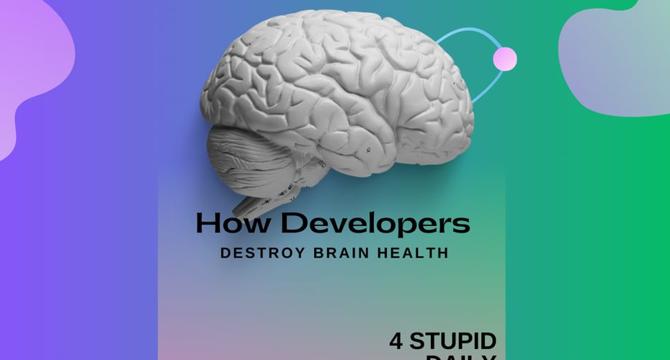Dev
1M
352

Image Credit: Dev
How Developers Destroy Brain Health
- Software developers' daily habits can work against their brain health. Marathon coding sessions, lack of exercise, ignoring mental stimulation and social isolation are particularly hazardous. Working extended periods of time without adequate breaks interrupts the natural rhythm of the brain, and sleep is essential for memory consolidation, emotional regulation and cognitive operations. Prolonged sleep loss can lead to cognitive decline, inattention and decision-making impairments. Developers should engage in healthy habits such as regular breaks, sleep schedules and following the Pomodoro technique.
- Regular physical exercise increases blood flow to the brain, sharpens cognitive functions, helps release neurotransmitters and reduces the risk of cognitive decline. Inactivity increases the susceptibility to mood disorders, dull thinking, obesity, diabetes and heart disease, all of which are particularly bad for the brain. Simple exercise sessions can be initiated with a few minutes per hour and increased with brisk walks, stretches or a standing desk at work.
- Continuous learning and intellectual stimulation are exactly what is required to maintain healthy cognitive activity and enhance mental performance. Developers should look for learning activities outside their operational environment - enroll in an online course, attend a tech meetup and learn one or two new programming languages and frameworks. Intellectual stimulation keeps the brain lively and quick.
- Social isolation and loneliness have psychological implications such as depression, anxiety and cognitive decline. Strong social relationships with family, friends and colleagues provide a good foundation toward maintaining mental health. Professional success and personal happiness should coexist, and changes such as a healthy work-life balance, rest, exercise and social engagement could go a long way in sustaining long-term cognition.
Read Full Article
21 Likes
For uninterrupted reading, download the app